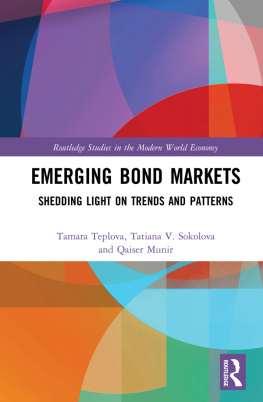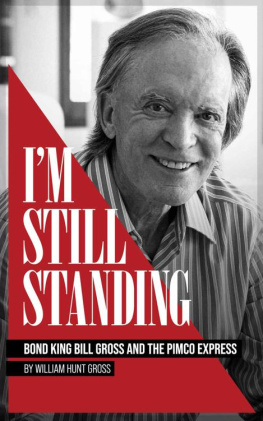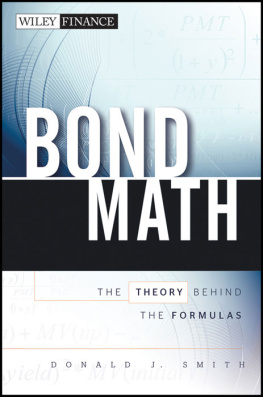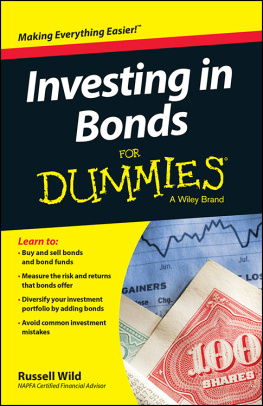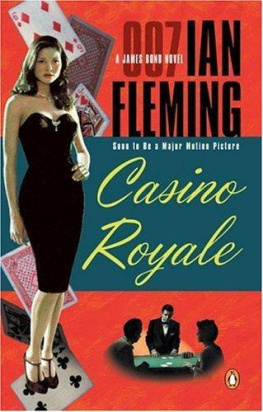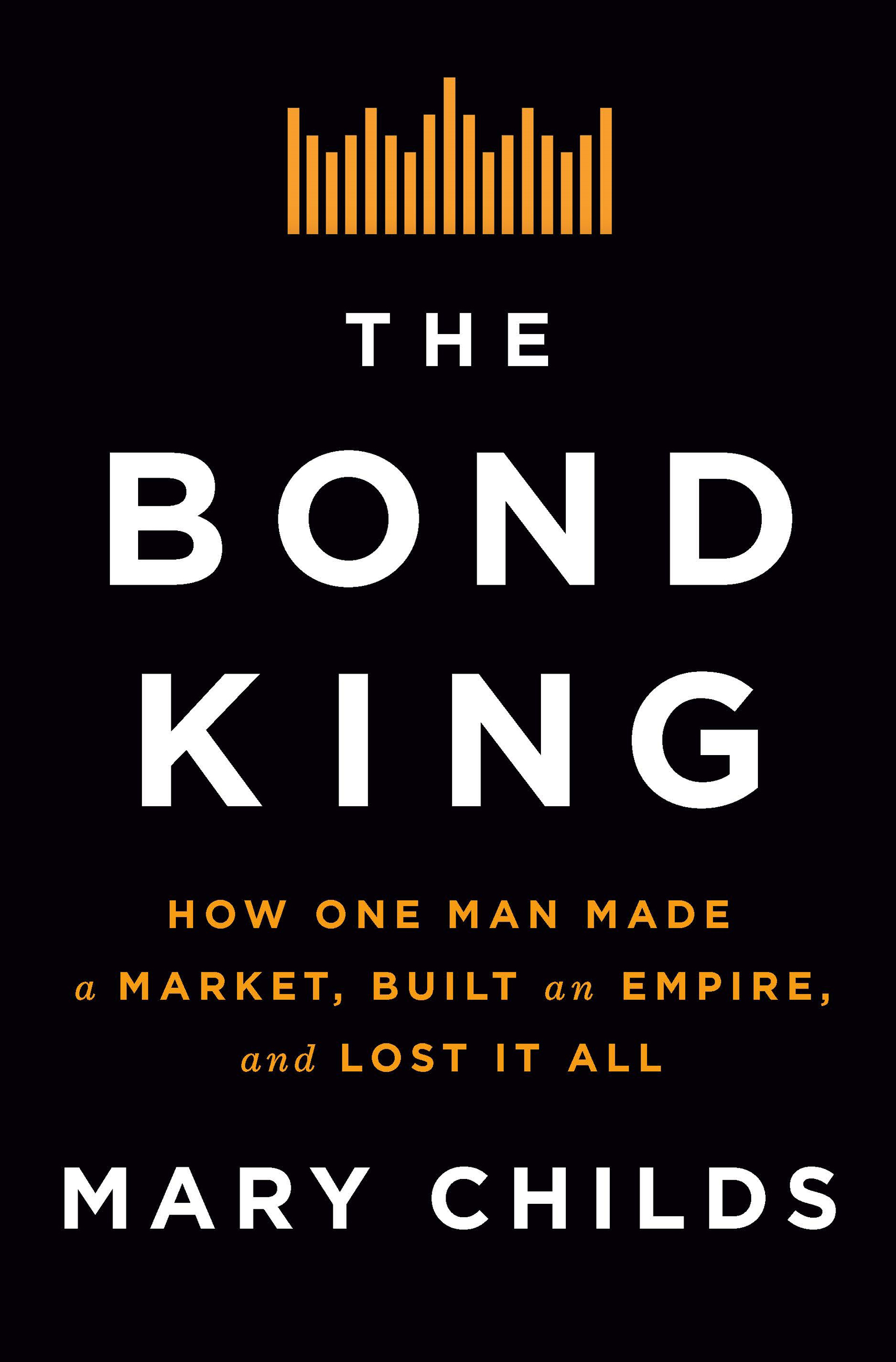Contents
Guide
Pagebreaks of the print version

The author and publisher have provided this e-book to you for your personal use only. You may not make this e-book publicly available in any way. Copyright infringement is against the law. If you believe the copy of this e-book you are reading infringes on the authors copyright, please notify the publisher at: us.macmillanusa.com/piracy.
In November 2013, I made a big, dumb mistake. Id worked for weeks on this one story about one of the biggest money managers on the planet, Pacific Investment Management Company (aka Pimco), amassing a huge bet in the market I covered. Id cajoled sources into telling me about the trade in the opaque credit-default swap market, Id tabulated data, Id compulsively fact-checked. I had run it by the Pimco communications guy so many times he seemed extremely tired of hearing from me. The night before it ran, I finished my last paranoid fact-check, and my editor queued up the story to be published overnight.
In the morning, I got a weird email from my colleague Cordell, full of exclamation marks yet seeming to apologize for something? Apparently Bill Gross, Pimcos legendary founder and star investor, had been on Bloomberg Radio and said something in my story was wrong. On the international radio. And he named me.
I will take Mary to task in terms of her reporting, hed said. She needs to get her facts straight. He added that hed speak with me in a few minutes, after he hung up from the radio.
I thought I was going to vomit. I had botched a very basic and very important thing: the performance of Grosss biggest and most important fund. To investors, there is nothing more critical to get right. In the thirty-fourth paragraph, Id written that the fund was down about 3 percentId cited the funds price return, not total return. An absolute rookie move that you will understand in about thirty pages.
On air, Gross had stated the funds actual returns: Were beating the market by a good seventy-five basis points.
So now I had to fix my big story. Mortified, I sat at my Bloomberg Terminal (the special machine on which all of Wall Street runs), frantically trying to replicate the numbers hed said on air, that gain of 0.75 percent. Shouldnt be hard. But I couldnt. I kept getting something different, the same answer over and over: that the fund had lost 1 percent. I tried different time horizons. I retyped the funds name. I couldnt figure it out.
As promised, Gross called me after the radio interview. I did not vomit. I remember being surprised by how nice(-ish) he was about my mistake, perhaps because hed already publicly excoriated me. After a little chatting, I told Bill that I was working on fixing my storyI kept trying to get the performance figures hed said on air but couldnt. What am I doing wrong?
Yeah, well, he said with a little laugh. You got to say your numbers, I got to say mine.
That was our first interaction. Eight years ago. In the intervening years, we have chatted over hundreds of hours, about his firm, his career, his trades, his mistakes, his view of millennials, the nature of human connection, the meaning of a legacy. I have learned about his particular prides and insecurities, his relationship to numbers, and his relationship to the truth.
Few people in finance attracted as much sustained attention as Bill Gross, with his folksy Ohio humility and his catchphrases and his billions of dollars of personal wealth and trillions of dollars of other peoples money that he invested, for them, through Pimco. Hes been finance-famous for decades, beginning in the 1980s, when the sun had just risen on his empire.
Then, we were just a few years into an unprecedented boom in lending and borrowing. Money was pouring into any economically productive behavior, supercharging growth. The wild, free market was running tangly and overgrown, sprouting blue-chip industrial companies, revolutionary technologies, fringe start-ups. This great experiment helped fuel progress, creating affordable tools to improve life for billions of people.
Gross was at the forefront of all this. He was instrumental in creating and shaping the bond market that continues to fund corporations around the world; he inspired thousands of people who wanted to invest like him, trade like him, make money into more money like him.
Despite his best efforts, Grosss fame rarely spilled outside the world of finance. Largely because normal people dont like to talk about bonds. People think theyre too complicated, confusing. Instead, we like to talk about stocks, which are also claims on a company but are riskier, more whimsical. People think stocks are more fun, but, in my opinion, they are wrong. Stocks are dumb.
Stocks are the pieces of paper they let people like you and me buya tiny slice of ownership in a company, and if our company flourishes, you and I are richer by some degree. If it fails, we lose some or all of our money. Thats the game weve all agreed to.
Above the heads of people like you and me sits a larger, much more interesting and more influential world: the bond market. Bonds are mostly bought by sophisticated, institutional investorsbig kids. They generally dont come in small sizes; a normal trade is in the millions.
Despite their intimidating reputation, bonds and loans are not difficult to understand: everyone needs money, and sometimes thats a lump sum of money to buy a big thing or build a big thing. Issuing a bond is just transforming future payments into money upfront today. If youve ever bought a home or a car or Invisalign with financing, youre a bond issuer. Your lender makes their profit on your interest payments. Companies borrow money, and then they pay an interest rate on what they borrowed, just like you and me.
And, just like a mortgage, bonds and loans come in different structures and flavors. Some borrowings are backed by collateraltangible stuff that can be sold, should the borrower be incapable of paying the money back, while others are just paper agreements backed by good faith and the court system.
Since the first corporate bond was issued nearly four hundred years ago, many nuances and complexities have developed, accelerating in the past half-century. New structures sprang up, new products. Theres a new one blossoming as you read this. Its fun and exciting. It keeps you young.
Some peoplelike the ones youre about to meetlove this. Thrive on it. Know the different varietals and treasure their peculiarities, like lepidopterists pinning butterflies in their display cases.
King among these was Gross. He wandered into the nascent market by accident, but he was there at the dawn of that acceleration and helped invent new ways to make buying bonds profitable, extremely profitable. In his enthusiasm, he helped to punctuate, if not bring about, the end of this golden age.
In the financial crisis of 2008, when the bill for decades of corporate borrowing came due, instead of the borrowers paying, the government did. Companies, and financial institutions, were bailed out of their losses, by the governmentto some extent, by people like you and me.
This was most pronounced in home mortgages. And none played this moment more masterfully than Bill Gross and Pimco. Until this point, the U.S. mortgage market had long been halfway socialist (though wed never call it that). The government had always sort of promised it would step in and guarantee mortgages; Gross and Pimco, more than any other players, bullied the government into making that guarantee explicit. The government would make sure the end buyers of mortgage products, the investors, were made whole and did not lose moneythe people safe on the island of finance. By extension, that included those whod paid to invest their money into 401(k)s and mutual funds and hedge funds. But not those still paying their mortgages they were now paying into a negative space, where they owed more than the house was worth.


